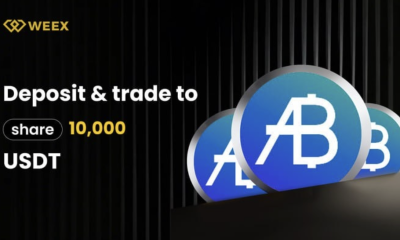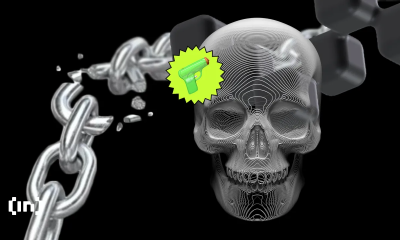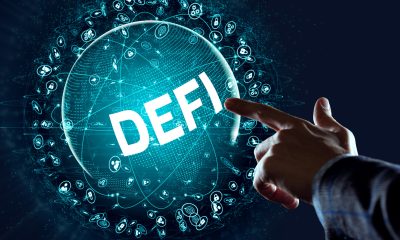Blockchain
A Blockchain Platform for Real-World Asset Digitization Officially Launches Mainnet
LocaChain, the pioneering blockchain platform designed for the digitization and management of tangible assets, has officially launched its mainnet. This marks a significant leap in blockchain technology with applications spanning various sectors, including real estate, bonds, and other high-value assets. LocaChain aims to build a complete ecosystem focused on advanced, sustainable solutions to meet global economic development needs through tokenized assets.
Revolutionizing Real-World Asset Management
With its mainnet platform, LocaChain offers a secure, scalable, and efficient infrastructure that facilitates the digitization and management of tangible assets like real estate and bonds. This allows for fast and transparent transactions, enabling investors and businesses to save both time and costs. Asset tokenization provides superior asset management solutions with transparency and traceability, building strong trust among all participants.
Key Features of LocaChain
Beyond asset management, LocaChain offers a diverse suite of features, positioning the platform as a comprehensive solution for businesses, developers, and users. LocaChain’s core functionalities include:
Core Infrastructure & Application Development
- DApp Development: LocaChain supports an environment for decentralized application (DApp) development, enabling businesses and developers to create real-world blockchain applications across various sectors.
- Wallet Integration: Securely store and manage assets on LocaChain.
- Token and NFT Transactions: Smooth token and NFT exchanges within the ecosystem.
User Engagement & Social Features
- SocialFi Integration: Adds social finance features to enhance user engagement on LocaChain.
Asset Management & Product Traceability
- Real-World Asset Digitization: Tokenize high-value assets such as real estate and bonds for secure and efficient management.
- Product Traceability: Provides end-to-end product traceability, ensuring the reliability and authenticity of goods across various industries.
- NFT Vouchers: Businesses can issue and manage NFT-based vouchers, offering a dynamic, digital way to reward customers and build flexible loyalty programs.
Marketplace & Transactional Features
- NFT Marketplace: Integrates an NFT marketplace where users can trade digital assets using LCG as the main token and LCC as the gas fee.
- E-commerce and Auction Applications: Supports e-commerce and auction platforms, enabling businesses to list, sell, and manage products transparently on the blockchain for enhanced transaction credibility.
Advanced Token & Financial Tools
- Multisend Token Feature via TrustKeys: Facilitates multi-token transfers, allowing users to efficiently distribute tokens to multiple recipients.
- Multi-Token Staking: Users can stake various tokens within the LocaChain ecosystem to earn rewards.
- Bridge to BSC: Provides a bridge for seamless asset transfers between LocaChain and Binance Smart Chain (BSC), enhancing interoperability with decentralized financial services.
- Crypto Payment Gateway: Supports integrated crypto payment gateways, allowing businesses to accept cryptocurrency payments and optimizing global transactions in a digital-first economy.
LocaChain in LocaGo Ecosystem
LocaChain serves as the blockchain backbone of the LocaGo ecosystem, designed to connect users and businesses through blockchain and AI technology. The LocaGo ecosystem encompasses multiple applications to enhance interaction between businesses and customers while increasing community engagement in real-world economic activities.
With its mainnet launch, LocaChain goes beyond asset management to become a vital part of a comprehensive digital ecosystem, offering optimal solutions for businesses and users in managing tangible assets and conducting transparent transactions.
For more details on LocaChain and LocaGo ecosystem, please visit the official website at https://locachain.io.
Contact
For media inquiries, partnerships, or further details, please contact:
LocaGo Media Relations
- Email: contact@locago.tech
- Website: https://locachain.io
Blockchain
Blockchain in the Ballot Box? NY Assembly Considers Tech to Fight Election Fraud


New York State may soon explore the application of blockchain technology in its electoral processes. Assemblyman Clyde Vanel has introduced a bill aimed at assessing how blockchain can support election transparency and reduce voter fraud.
The initiative comes at a time when blockchain adoption is gaining traction across the US under the new presidential administration.
Blockchain For Delivering ‘Uncensored Truth’
Vanel’s bill, submitted to the Assembly Election Law Committee, tasks the New York State Board of Elections with evaluating on-chain systems as tools for delivering what he terms “uncensored truth” in democratic processes. If approved, the Board will examine similar initiatives in other states and produce a comprehensive report within 12 months.
While the proposal is currently under committee review, it must pass through several legislative stages—including Assembly and Senate votes—before reaching the Governor’s desk for final approval. This marks the fifth version of Vanel’s election-focused blockchain legislation since 2017, none of which have yet become law.
Meanwhile, New York State has increasingly engaged with blockchain and cryptocurrency policy. In 2023, the New York State Cryptocurrency and Blockchain Study Task Force was launched to investigate the environmental and economic impacts of digital assets.
New York also pioneered regulatory frameworks for crypto companies with the introduction of the BitLicense in 2015 by former Department of Financial Services Superintendent Benjamin Lawsky.
Growing US Involvement With Crypto Amid Administration Shift
Interest in digital assets has grown since President Trump’s re-election, which included a March executive order advocating for the development of a Strategic Bitcoin Reserve.
In response, over 15 US states have moved to draft legislation supporting public investment in Bitcoin, with Arizona and Utah initially leading the effort. However, Utah later removed the Bitcoin provision from its proposed bill.
Additionally, lawmakers across state lines are examining various ways blockchain can support public infrastructure and government transparency. From digital identity verification to immutable public records, blockchain’s potential applications continue to be tested in pilot programs nationwide.
In the electoral space, blockchain’s decentralized structure could offer an added layer of protection against tampering and misinformation, particularly in contentious or high-turnout elections.
Should New York proceed with this evaluation, the outcome could influence broader efforts to digitize and secure voting systems. While critics may question blockchain’s scalability or voter accessibility, supporters argue it offers a tamper-resistant, auditable solution well-suited for modern governance.
Vanel’s legislation could lay the groundwork for a more technologically integrated electoral process that balances innovation with security.
If passed and successfully implemented, New York’s blockchain election report could serve as a reference point for other states considering similar measures, potentially setting the stage for a nationwide shift in how democratic systems utilize emerging technologies.
Featured image created with DALL-E, Chart from TradingView

Editorial Process for bitcoinist is centered on delivering thoroughly researched, accurate, and unbiased content. We uphold strict sourcing standards, and each page undergoes diligent review by our team of top technology experts and seasoned editors. This process ensures the integrity, relevance, and value of our content for our readers.
Blockchain
Trump Administration Push for Blockchain-Powered USAID Overhaul—Here’s What Could Change
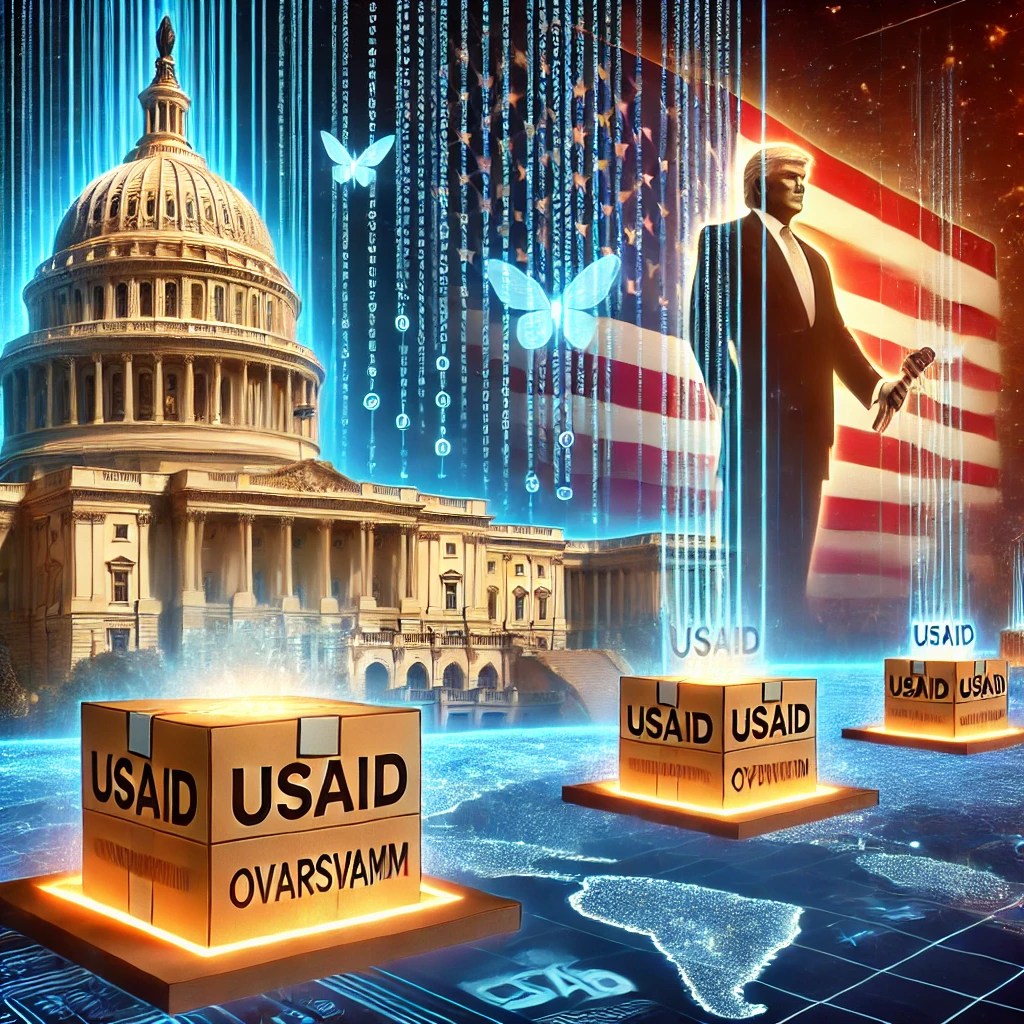

A newly surfaced proposal concerning blockchain is now circulating within the US State Department hinting at a potential shift in how the United States Agency for International Development (USAID) operates.
Under a set of recommendations backed by Trump administration officials and linked to the Elon Musk-led DOGE government efficiency unit, the agency may begin utilizing blockchain technology to enhance transparency and security in foreign aid disbursement.
Adopting Blockchain in Foreign Aid Reform
According to a draft document obtained by Politico, blockchain integration is being considered as part of a broader effort to modernize and restructure USAID’s procurement processes.
The proposal outlines that all aid distributions could be tracked using blockchain to “ensure accountability,” “reduce inefficiencies,” and allow implementing partners “greater flexibility.”
Although the proposal doesn’t clarify whether a public, private, or hybrid blockchain system would be used, it emphasizes the benefits of “secure and traceable” fund flows for international aid programs.
Meanwhile, USAID, the US agency responsible for administering foreign development assistance, has faced criticism in recent years over perceived inefficiencies and spending priorities.
The proposal aligns with ongoing efforts from the Trump camp to realign foreign aid programs with national strategic interests. It describes current aid structures as too “expansive and disorganized,” urging a shift toward focused initiatives tied to measurable outcomes in regions critical to US interests. The document wrote:
A better approach would be to foster peace and stability in regions critical to U.S. interests, catalyze economic opportunities that support American businesses and consumers, and mitigate global threats such as pandemic diseases.
Potential Restructuring and Strategic Realignment
Alongside blockchain adoption, the document proposes renaming USAID to the “U.S. Agency for International Humanitarian Assistance (IHA)” and moving the agency under the direct control of the State Department.
Areas of focus would include global health, food security, and disaster response, with an emphasis on reducing politically oriented programs and streamlining operations.
The recommendations follow past efforts by the Trump administration to limit USAID funding and staff, moves that were met with legal pushback and public criticism.
While the document reflects a serious policy proposal, it does not yet represent formal government action. The proposal acknowledges that some aspects would require congressional approval and legislative changes.
It is also unclear whether Secretary of State Marco Rubio or other senior officials within the current administration have reviewed or approved the recommendations.
Still, the introduction of blockchain as a transparency mechanism signals a growing interest in applying emerging technologies to government operations—an area of focus that may continue regardless of future political leadership.
Featured image created with DALL-E, Chart from TradingView

Editorial Process for bitcoinist is centered on delivering thoroughly researched, accurate, and unbiased content. We uphold strict sourcing standards, and each page undergoes diligent review by our team of top technology experts and seasoned editors. This process ensures the integrity, relevance, and value of our content for our readers.
Blockchain
Ethena Labs and Securitize to launch Converge, a new blockchain for DeFi
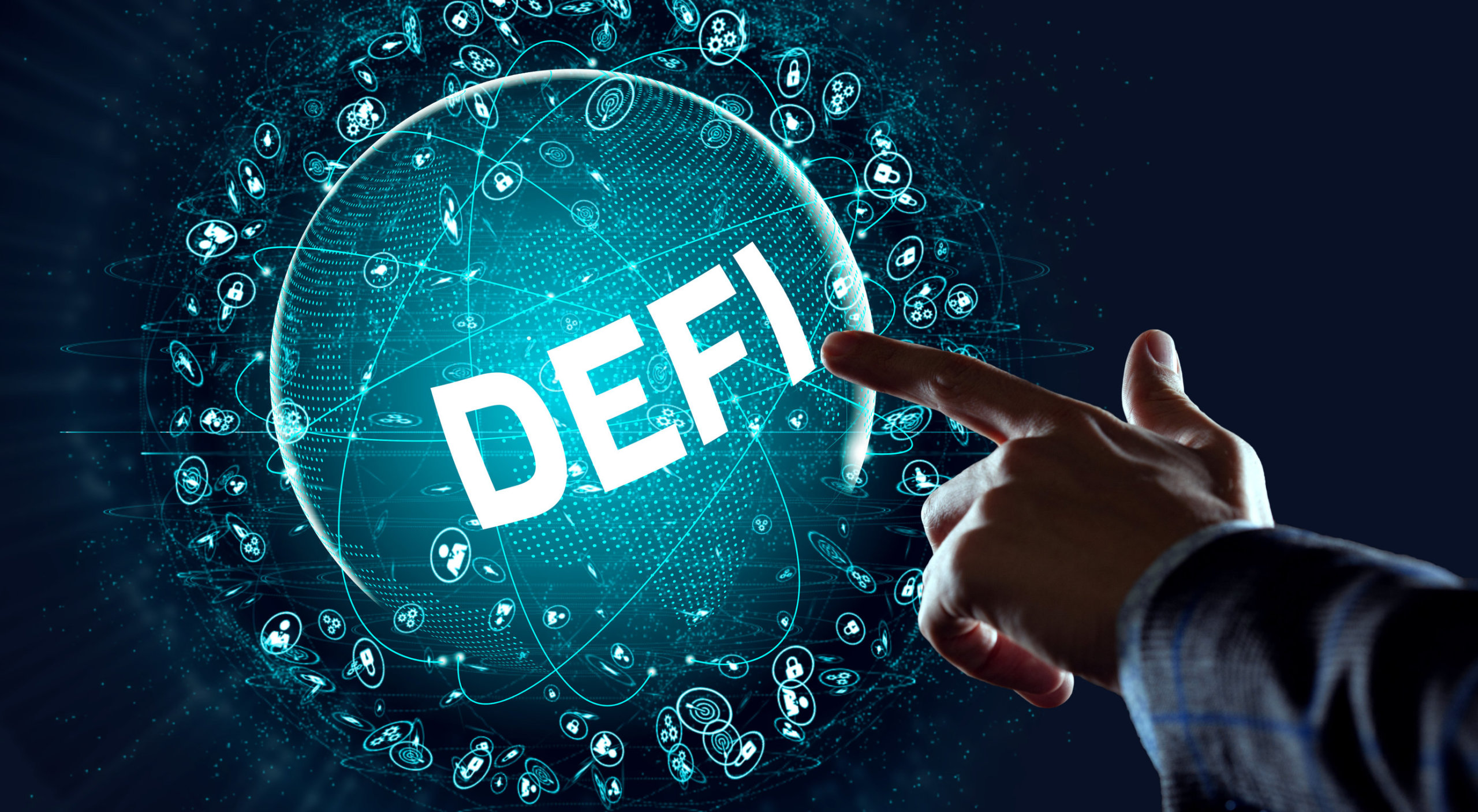

- Ethena Labs and Securitize are joining forces to launch Converge, a new blockchain for decentralized finance and tokenized assets.
- Converge will be Ethereum Virtual Machine-compatible and serve both retail and institutional DeFi.
- ENA price rose 5% to change hands above $0.38 following the announcement
Ethena Labs and Securitize are teaming up on a venture that will see the crypto projects unveil Converge, a new blockchain built for tokenized assets and decentralized finance.
Announced on Mar. 17, Converge will be a custom-built, Ethereum-compatible blockchain. The developers envision a platform that will cater to both everyday investors and deep-pocketed institutional players.
Per a blog post introducing the new blockchain, the anticipated launch date is Q2 2025.
Ethena, Securitize unveil Converge
According to Ethena Labs, Converge is a blockchain platform designed to bridge the gap between traditional finance and DeFi.
The technology behind the EVM-compatible chain will allow users to leverage user-friendly decentralized applications for retail investors. Converge will also offer a suite of top tools aimed at institutional investors.
Both Ethena Labs and Securitize plan to tap into the new blockchain to advance the DeFi and asset tokenization ecosystem. In this case, the partnership will see Ethena bring its burgeoning DeFi to Converge.
Securitize will also revamp its traction in the real-world asset (RWA) tokenization space. With nearly $2 billion minted, Securitize stands out as one of the top platforms championing the growth of tokenized assets.
Converge’s unveiling will bring an EVM-compatible settlement layer, driving new adoption for stablecoins and tokenized assets.
“We’re developing Converge to fill a clear gap in the market as the go-to settlement layer for institutional-grade DeFi and tokenized assets,” Guy Young, founder of Ethena Labs, said in a statement.
According to Young, “storage and settlement of stablecoins and tokenized assets” is set to be a massive opportunity in the coming years.
Stablecoins, blockchains and exchanges are a “holy trinity of crypto protocols” the Ethena Labs founder posted on X.
Further comments came from Carlos Domingo, the co-founder and CEO of Securitize. He noted:
“By combining Ethena’s innovation in DeFi with Securitize’s leadership in tokenizing real-world assets, Converge sets a new standard for how institutions can confidently engage with on-chain financial markets.”
Converge’s initial launch partners
The two firms will look to advance Converge via key industry collaborations. Helping the cause are initial launch partners, including Pendle, Aave Labs (via its Horizon project), Morpho, Ethereal and Maple Finance.
Converge’s RWA traction will also benefit from custodial support from Anchorage, Copper, Fireblocks and Zodia among other institutional-grade custody providers.
Also key will be interoperability partners LayerZero and Wormhole. Meanwhile, Converge will tap into oracle support from Pyth Network and RedStone.
Furthermore, Converge will use Ethena’s native governance token ENA for staking and security. The latter will tap into a permissioned validator set. The USDe and USTb stablecoins will power network transactions as gas tokens.
The news saw the ENA token jump more than 5% to trade above $0.38.
-

 Altcoin18 hours ago
Altcoin18 hours agoAnalyst Reveals Dogecoin Price Can Reach New ATH In 55 Days If This Happens
-

 Market22 hours ago
Market22 hours agoCardano (ADA) Moves Sideways, But Bullish Shift May Be Brewing
-

 Market18 hours ago
Market18 hours agoBinance Mandates KYC Re-Verification For India Users
-

 Altcoin21 hours ago
Altcoin21 hours agoPi Coin Price Soars As Pi Network Reveals Massive Community Reward Plans.
-
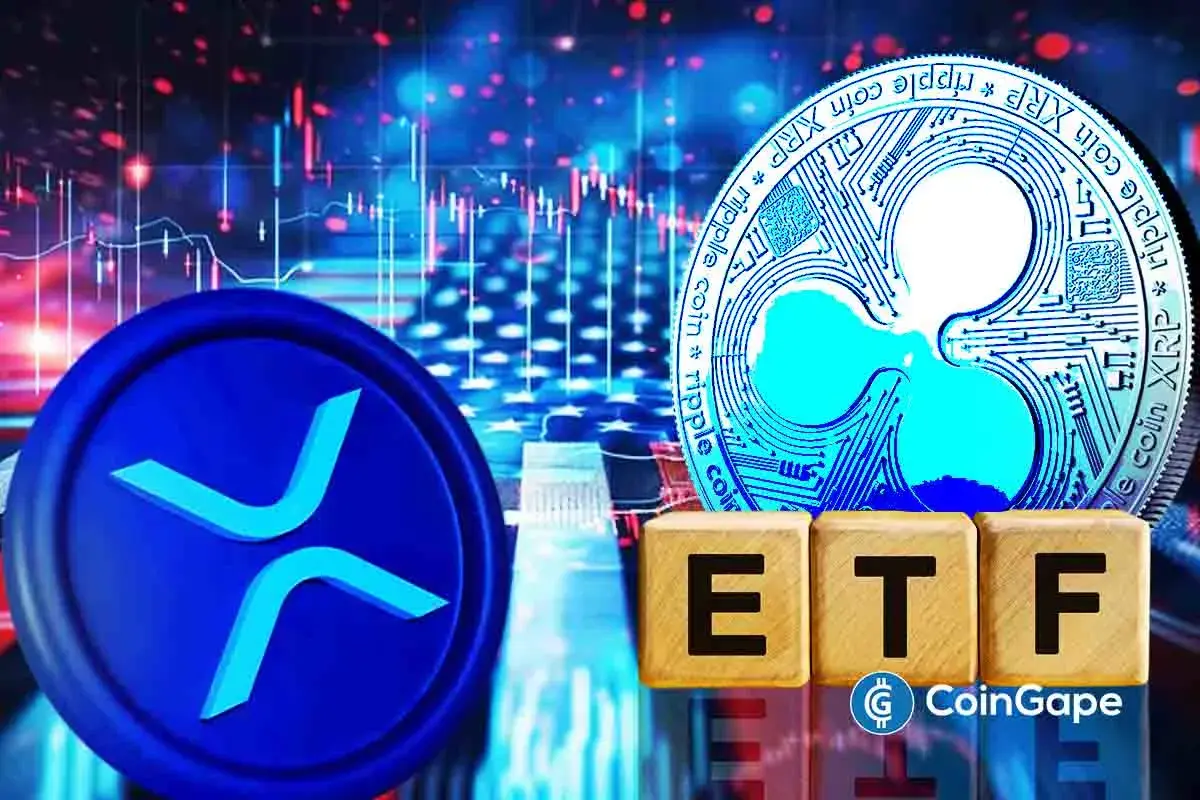
 Altcoin22 hours ago
Altcoin22 hours agoXRP ETF Approval Could Spark a ‘Perfect Storm’ for Ripple Coin: Expert
-
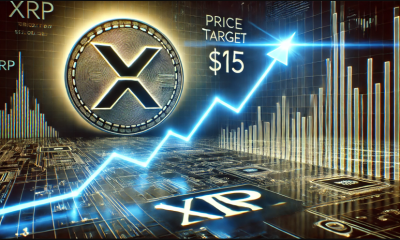
 Market21 hours ago
Market21 hours agoRipple Takes Asia By Storm With New XRP Product, Here Are The Recent Developments
-
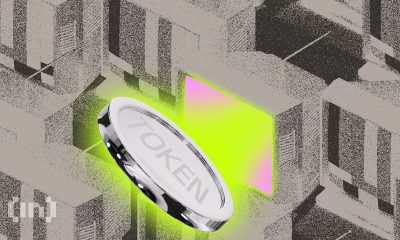
 Market20 hours ago
Market20 hours agoSCR, PLUME, ALT Tokens Unlocking This Week
-

 Altcoin13 hours ago
Altcoin13 hours agoCardano Bulls Secure Most Important Signal To Drive Price Rally





